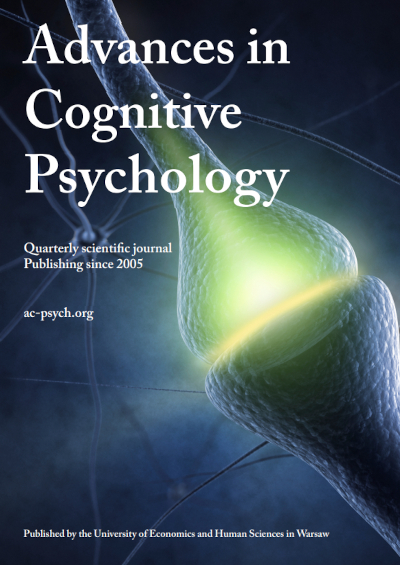Archive of all online content
-
Volume 22 Issue 1
pp. 1-41
()
-
Volume 21 Issue 4
pp. 309-500
(16 November 2025) -
Volume 21 Issue 3
pp. 212-308
(2 September 2025) -
Volume 21 Issue 2
pp. 120-211
(25 May 2025) -
Volume 21 Issue 1
pp. 1-93
(11 March 2025)
-
Volume 20 Issue 4
pp. 237-388
(20 November 2024) -
Volume 20 Issue 3
pp. 158-236
(19 August 2024) -
Volume 20 Issue 2
pp. 80-157
(24 June 2024) -
Volume 20 Issue 1
pp. 1-79
(1 March 2024)
-
Volume 19 Issue 4
pp. 1-105
(27 December 2023) -
Volume 19 Issue 3
pp. 211-333
(25 July 2023) -
Volume 19 Issue 2
pp. 111-200
(30 June 2023) -
Volume 19 Issue 1
pp. 1-110
(31 March 2023)
-
Volume 18 Issue 4
pp. 243-303
(31 December 2022) -
Volume 18 Issue 3
pp. 165-202
(30 September 2022) -
Volume 18 Issue 2
pp. 85-164
(30 June 2022) -
Volume 18 Issue 1
pp. 1-84
(31 March 2022)
-
Volume 17 Issue 4
pp. 250-291
(31 December 2021) -
Volume 17 Issue 3
pp. 193-249
(30 September 2021) -
Volume 17 Issue 2
pp. 99-192
(30 June 2021) -
Volume 17 Issue 1
pp. 1-98
(31 March 2021)
-
Volume 16 Issue 4
pp. 291-369
(31 December 2020) -
Volume 16 Issue 3
pp. 176-290
(30 September 2020) -
Volume 16 Issue 2
pp. 85-175
(30 June 2020) -
Volume 16 Issue 1
pp. 1-84
(31 March 2020)
-
Volume 15 Issue 4
pp. 236-317
(31 December 2019) -
Volume 15 Issue 3
pp. 169-235
(30 September 2019) -
Volume 15 Issue 2
pp. 75-168
(30 June 2019) -
Volume 15 Issue 1
pp. 1-74
(31 March 2019)
-
Volume 14 Issue 4
pp. 150-208
(31 December 2018) -
Volume 14 Issue 3
pp. 62-150
(30 September 2018) -
Volume 14 Issue 2
pp. 38-61
(30 June 2018) -
Volume 14 Issue 1
pp. 1-37
(31 March 2018)
-
Volume 13 Issue 4
pp. 267-322
(31 December 2017) -
Volume 13 Issue 3
pp. 190-266
(30 September 2017) -
Volume 13 Issue 2
pp. 121-189
(30 June 2017) -
Volume 13 Issue 1
pp. 1-120
(31 March 2017)
-
Volume 12 Issue 4 (special issue)
pp. 150-235
(31 December 2016) -
Volume 12 Issue 3
pp. 130-149
(30 September 2016) -
Volume 12 Issue 2
pp. 67-129
(30 June 2016) -
Volume 12 Issue 1
pp. 1-66
(31 March 2016)
-
Volume 11 Issue 4
pp. 118-135
(31 December 2015) -
Volume 11 Issue 3
pp. 64-117
(30 September 2015) -
Volume 11 Issue 2
pp. 31-63
(30 June 2015) -
Volume 11 Issue 1
pp. 1-30
(31 March 2015)
-
Volume 10 Issue 4
pp. 119-155
(31 December 2014) -
Volume 10 Issue 3
pp. 81-118
(30 September 2014) -
Volume 10 Issue 2
pp. 32-80
(30 June 2014) -
Volume 10 Issue 1
pp. 1-31
(27 February 2014)
-
Volume 9 Issue 4
pp. 156-223
(31 December 2013) -
Volume 9 Issue 3
pp. 112-155
(24 October 2013) -
Volume 9 Issue 2
pp. 53-111
(30 June 2013) -
Volume 9 Issue 1
pp. 1-52
(31 March 2013)
-
Volume 8 Issue 4
pp. 267-295
(31 December 2012) -
Volume 8 Issue 3
pp. 210-266
(27 September 2012) -
Volume 8 Issue 2
pp. 70-209
(28 June 2012) -
Volume 8 Issue 1
pp. 1-69
(29 March 2012)
-
Volume 7 Issue 2
pp. 55-156
(31 December 2011) -
Volume 7 Issue 1
pp. 1-54
(31 March 2011)
-
Volume 6 Issue 6
pp. 1-141
(31 December 2010)
-
Volume 5 Issue 5
pp. 1-134
(31 December 2009)
-
Volume 4 Issue 1
pp. 1-14
(31 March 2008)
-
Volume 3 Issue 4
pp. 419-465
(31 December 2007) -
Volume 3 Issue 3
pp. 363-417
(30 September 2007) -
Volume 3 Issue 1
pp. 1-361
(31 March 2007)
-
Volume 2 Issue 4
pp. 239-276
(31 December 2006) -
Volume 2 Issue 2
pp. 99-237
(30 June 2006) -
Volume 2 Issue 1
pp. 1-97
(31 March 2006)
-
Volume 1 Issue 1
pp. 1-16
()
Volume 8 Issue 4 (2012)
Sensitivity to the acoustic correlates of lexical stress and their relationship to reading in skilled readers
Gareth J. Williams, Clare Wood

Gareth J. Williams, Division of Psychology, Nottingham Trent University, Nottingham NG1 4BU, UK.
E-mail: gareth.williams@ntu.ac.uk
The role of suprasegmental information in reading processes is a growing area of interest, and sensitivity to lexical stress has been shown to explain unique variance in reading development. However, less is known about its role in skilled reading. This study aimed to investigate the acoustic features of suprasegmental information using a same/different cross-modal matching task. Sixty-four adult participants completed standardized measures of reading accuracy, reading speed, and comprehension and performed an experimental task. The experimental task required the participants to identify whether non-speech acoustic sequences matched the characteristics of written words. The findings indicated differences in responses depending on where the lexical stress was required for the word. Moreover, evidence was found to support the view that amplitude information is part of the word knowledge retrieval process in skilled reading. The findings are discussed relative to models of reading and the role of lexical stress in lexical access.
Keywords: lexical stress, multisyllabic words, reading, comprehensionEvent-related potential practice effects on the Paced Auditory Serial Addition Test (PASAT)
Jeffrey M. Rogers, Allison M. Fox

Corresponding author: Jeffrey M. Rogers, School of Psychology, Australian Catholic University, Locked Bag 2002, Strathfield, NSW, 2135, Australia.
E-mail: jeffrey.rogers@acu.edu.au
Practice can change the nature and quality of a stimulus-response relationship. The current study observed the effects of repeated administration of the Paced Auditory Serial Addition Test (PASAT) in 12 healthy individuals, in an effort to establish distinct profiles associated with novel and practiced processing. Over four training sessions the mean number of correct responses on this demanding test of attention significantly improved and was approaching ceiling for most task conditions. Behavioural improvements were associated with significantly reduced amplitude of late Processing Negativity, a frontally distributed component of the event-related potential waveform associated with voluntary, limited-capacity activity within higher-order attentional systems. These results suggest that PASAT performance became more efficient as practice seemingly eased the strategic planning and coordination requirements the task places on frontally-mediated executive attention resources. The findings of the current study extend our understanding of the functional and behavioural mechanisms underlying the effects of practice.
Keywords: PASAT, event-related potentials, practice-effects, attentionCategory clustering calculator for free recall
Olesya Senkova, Hajime Otani

Hajime Otani, Department of Psychology, Central Michigan University, 1200 South Franklin Street, Mount Pleasant, MI, 48859, USA.
E-mail: otani1h@cmich.edu
The free recall measure is one of the most popular measures in memory research. Using this measure, researchers can assess not only the amount of recall but also the strategy participants used to recall the material. Category clustering is a strategy participants often use when the input list is categorized. Unfortunately, computing category clustering measures is laborious. The present paper introduces a calculator that computes these measures for each participant using a platform that is accessible to most researchers in an attempt to make these measures more user-friendly.
Keywords: free recall, category clusteringLetter from the editors
Rob H. J. van der Lubbe, Ulrich Ansorge
Letter from the editors
Keywords: Letter from the editors


